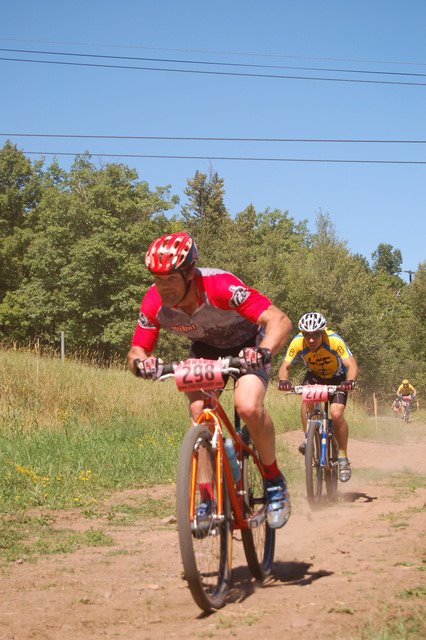• Perseverance
• Managing Impulsivity
• Thinking Flexibly
• Responding with Wonderment and Awe
• Metacognition
• Taking Responsible Risks
• Finding Humor
• Thinking Interdependently
• Applying Past Knowledge to New Situations
As part of a course that I teach, we attempt to explore instances in history whereby certain individuals (or small groups) do the right thing (or at least history looks favorably upon their actions). A case-in-point involves an analysis of the character traits of the architects and purveyors of the post WWII Marshall Plan. The idea is to explore the question of how do successful people react when confronted with a challenging problem(s). In conducting thousands of interviews and surveys designed to ascertain the kinds of characteristics (or HABITS) that successful people possess, Costa and Kallich have made academic careers out of attempting to answer the above question…
Below is Part I of an effort to apply some of Costa & Kallich’s (C&K) work to aspects of our beloved sport of endurance cycling. This essay, in part, represents an effort by the author to demonstrate to his students that the lessons of history can be applied to the art of living ones own life.
C&K contend that successful people take on or adopt habits that are remarkably similar across professions, institutions, trades, and sports. It is noteworthy that the authors use the term, “habits” so as to promote the heartening notion that these “studied” successful people are not necessarily beholden to their success because of superior genetics and/or even God-given inherent talents; instead success has come to these people as a direct result of concerted efforts on their part to adopt a measure of productive and positive “habits.” Essentially, the fact that anyone can take on a habit, is the overriding conclusion they are trying to promote in the application of their research. C&K maintain that there are sixteen over-arching traits that successful people embrace across this pluralistic society of ours. I have limited this particular work to a review of nine of these “Habits” to which I contend are especially applicable to preparing for and successfully completing the upcoming Trans-Wisconsin (or the like)...
Part I—
Habit #1: Perseverance. “In the realm of ideas everything depends on enthusiasm... in the real world all rests on perseverance,” was the conclusion drawn by Goethe, and he was right! C&K’s work establishes that the number one character trait of highly successful people is their propensity for “stick-to-it-tiveness.” It should come as no surprise that successful people don’t give up easily, they always fight the good fight and yet they also live to fight another day. Furthermore, when it becomes obvious that they are no longer engaged in a good fight or a “winnable” one, they take concerted measures to change the game with an eye on surviving to begin anew when the smoke clears. George Lowe, back in the 1970s and 80s was one of the best American alpinists, known for amazing ascents up previously unclimbed sheer faces, and yet he used to always brag about the fact that he failed on many of the climbs that he attempted. When asked to clarify, he would inevitably cite the little maxim, “there are lots of bold climbers out there and lots of old climbers out there, but there are very few bold, old climbers...” The point he was making resonates with successful people. The point being that while such people do not give up easily, at the same time they recognize when a plan must be dumped and another employed. Of course, one might ask, how does one know when to abandon ship? How does one determine whether the game is lost or just passing through a tough time? C&K asked these kinds of questions to a diverse cross-section of those of whom their counterparts described as “successful leaders” and they all were in agreement that they are persisting well beyond the norm and yet they are also not averse to dealing with “ambiguous situations.” They are not ever married to a specific strategy for success, to them success is key, while the pathway to success is negotiable. So instead of giving up on the goal when a particular plan seems hopeless, they instead come prepared with a repertoire of problem-solving alternatives.
So then how do we, as endurance cyclists, adopt this trait or habit into our arsenal for victory in the Trans-Wisconsin or a similar challenge? The notion of Perseverance is at its core a matter of time management as it connotes the passage of time. To persevere is to “persist steadily in an action or belief, usually over a long period and especially despite problems or difficulties,” so the application to endurance cycling is obvious. Therefore to adopt this habit of perseverance within the context of a long off-road race is to consider carefully the goal and to then develop a strategy to attack the potential problems that one may face as he or she pursues the goal. Specific to the Trans-Wisconsin; the ultimate goal is to finish the 550 mile race. It would be nice if the author could vie for a top finish and the planning will reflect this wish. Yet the goal per se is the do the route from start to finish. To persevere is the manage the time and thus to my way of thinking, will ultimately be the number one key to success...Embrace Habit #1 and therefore arrive to the farm country that is the southern border of Wisconsin with a range of alternative strategies by which to persevere until one feels the cold waters of Lake Superior upon ones face!!!
Look forward to Habit #2 in due time...
Habit #2 is Managing Impulsivity

No comments:
Post a Comment
Comments?